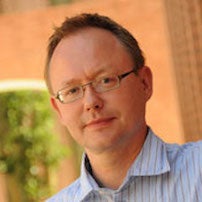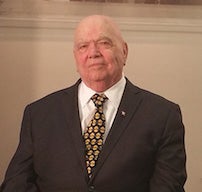Experts on the Armenian Genocide, Genocide Awareness and Prevention Month
What does the recent dispute between Pope Francis and Turkey over the Armenian Genocide signify? What can we learn 100 years after the Armenian Genocide?
Contact: Josh Grossberg at (213) 740-6065 josh.grossberg@usc.edu or Emily Gersema at (213) 740-0252 gersema@usc.edu
April is Genocide Awareness and Prevention Month, and this year’s commemoration coincides with the 100th anniversary of the start of the Armenian Genocide.
USC Shoah Foundation is adding 60 testimonies from survivors of the Armenian Genocide to its Visual History Archive this month, and another 400 later this year. Those clips will join the 53,000 other testimonies that the Institute has collected from the Holocaust, the Rwandan Tutsi Genocide and the 1938 Nanjing Massacre.
The Institute has been showcasing a clip of the testimonies every day in April.
To view the testimonies and learn more about the Institute’s work, visit www.sfu.usc.edu.
Turkey, the Pope and the Armenian Genocide
 Recent events demonstrate that the genocide in 1915 that killed 1.5 million Armenians in Eastern Turkey remains a contentious issue. Pope Francis this week called it “the first genocide of the 20th century,” prompting Turkey to recall its ambassador to the Vatican and denounce the pope’s statement.
Recent events demonstrate that the genocide in 1915 that killed 1.5 million Armenians in Eastern Turkey remains a contentious issue. Pope Francis this week called it “the first genocide of the 20th century,” prompting Turkey to recall its ambassador to the Vatican and denounce the pope’s statement.
“Genocides are not a thing of the past. Despite our promises of ‘never again,’ they continue to inflict unimaginable suffering on our fellow human beings.”
USC Shoah Foundation Executive Director Stephen D. Smith is the executive director of the USC Shoah Foundation – The Institute for Visual History and Education. A theologian, Smith is an expert on genocide studies and visual histories.
Contact: (213) 740-6003 or smithsd@usc.edu
The Aftermath of a Genocide 100 years Ago
 “Although the Armenian Genocide was 100 years ago, there are many families of victims who continue to be haunted by it, even as some try to deny that it even occurred. Commemorating Genocide Awareness and Prevention Month is a way for us to reflect on what it means to live in a world where such things are possible, and to redouble our efforts to create a world where such things are impossible.”
“Although the Armenian Genocide was 100 years ago, there are many families of victims who continue to be haunted by it, even as some try to deny that it even occurred. Commemorating Genocide Awareness and Prevention Month is a way for us to reflect on what it means to live in a world where such things are possible, and to redouble our efforts to create a world where such things are impossible.”
Wolf Gruner is the founding director of the USC Shoah Foundation Center for Advanced Genocide Research, which has thousands of important historical documents related to the Armenian Genocide. Gruner is a history professor and an expert on the Holocaust and genocides of indigenous peoples.
Contact: (213) 740-1668 or gruner@usc.edu
Lessons from a Dark Time in the 20th Century
 “It’s easy to think of genocide in the abstract — the numbers of victims are just too large to comprehend. The Armenian Genocide sadly marks a dark side of the 20th century, and it is essential to integrate its lessons into the collective history of humankind.”
“It’s easy to think of genocide in the abstract — the numbers of victims are just too large to comprehend. The Armenian Genocide sadly marks a dark side of the 20th century, and it is essential to integrate its lessons into the collective history of humankind.”
Professor Richard Hovannisian, one of the world’s leading scholars on the Armenian Genocide, is an adjunct professor of history at USC and is an adviser to the USC Shoah Foundation.
Contact: rhovanni@usc.edu



